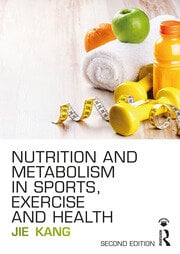ABSTRACT
The effective regulation of all metabolic processes requires a delicate blending of food nutrients in the watery medium of the cell. Vitamin toxicity is a condition in which a person develops symptoms as side effects from taking massive doses of vitamins. The body has the ability to store and excrete vitamins. Vitamin A is found pre-formed and in precursor or provitamin forms in our diet. Vitamin D has an interesting and unique place among the nutrients. Vitamin E refer to eight different naturally occurring compounds that all have somewhat similar chemical structure. Vitamin K was discovered and named for its role in koagulation by Henrik Dam, a Danish physiologist who found that vitamin K deficiency in chickens caused excessive bleeding. Water-soluble vitamins include vitamin C and the B vitamins such as thiamin, riboflavin, niacin, pantothenic acid, biotin, vitamin B-6, folate and vitamin B-12. Thiamin or vitamin B1 is widely distributed in foods. Niacin takes two forms: nicotinic acid and nicotinamide.


